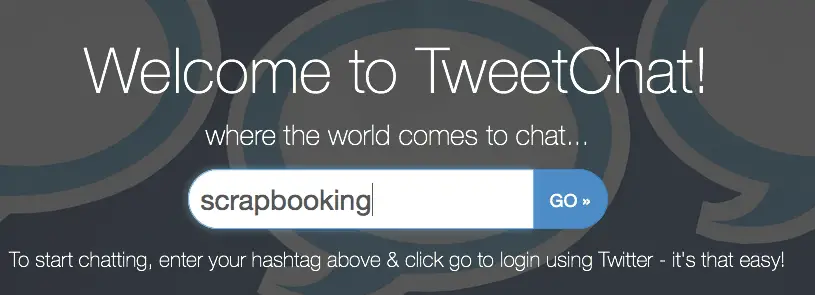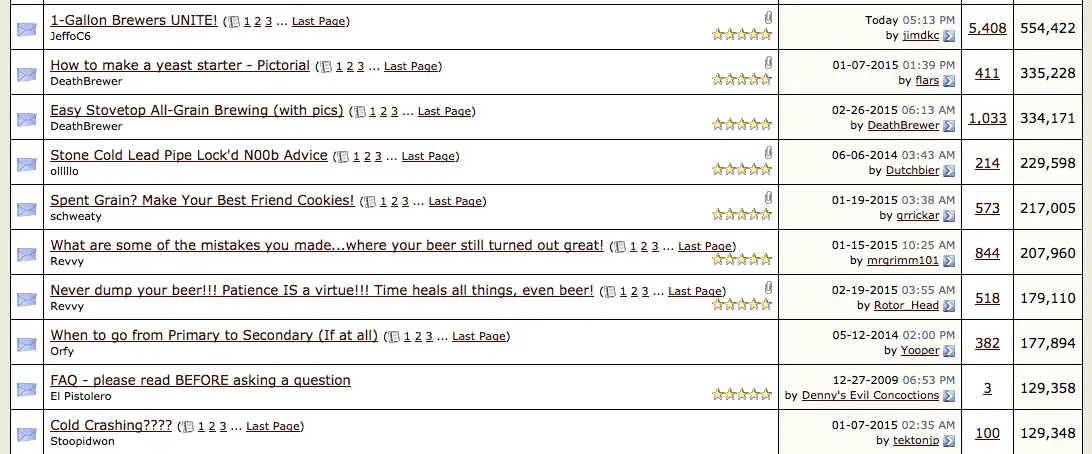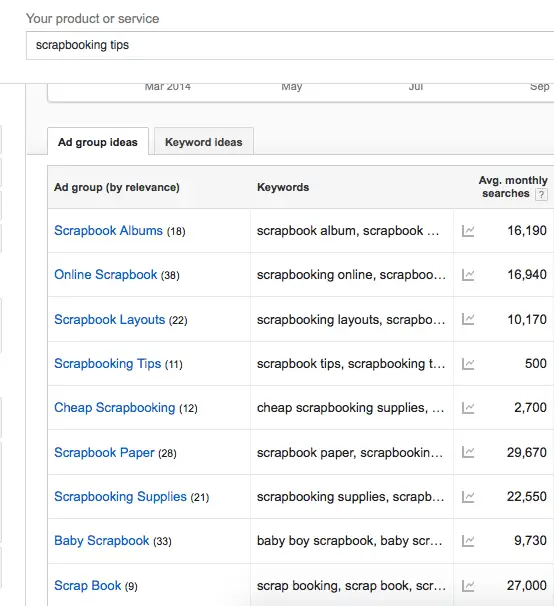
The #1 thing people told me was that they felt they didn’t have enough to talk about.
This was surprising to me, considering how EASY it can be to come up with content ideas! And that’s why I wanted to make today’s blog post.
I mean, even if you don’t want to create a podcast, being able to create consistent content is very important. The more content you put out, the more people can get a feel for what you’re about. It makes it easier for people to find you, share your content, and then eventually sign up for your offerings.
Before I go into 17 different ways you can come up with endless content, I’d love to offer you a way to get the most from what I’m about to share:
Instead of just skimming this post, open up a blank notepad file or take out your physical notebook.
As you go through my suggestions, write down different topic ideas that come to mind. Keep going until you get 50-100 ideas. If you’re focused, you can come up with a year’s worth of content ideas in an hour.
That said, here are 17 ways you can come up with endless content:
1. Go on forums or Facebook groups and see what people in your niche are most interested in.
Go onto google and do a search for “niche + forum” (i.e. “gardening forum”, “scrapbooking forum”, “online marketing forum”).
When you go onto forums, you can usually sort by “Views” to see what posts people looked at the most, which of course shows you what people are most interested in hearing about.
If you can’t sort automatically, you can eyeball it and see what posts have gotten the most views and replies.
For example, let’s say you’re into beer brewing. A quick search shows HomeBrewTalk.com, and sorting by views shows this:
From a one minute glance, I see potential topic ideas are:
- Brewing with 1 gallon brewers
- How to stovetop brew
- How to make a yeast starter
- How to turn grain into cookies
- Mistakes that turned into blessings
- Why not to dump your beer
- Cold crashing
Can you see how you can come up with 50 ideas in under an hour by using this method?
You can do the same thing on Facebook groups in your niche. There’s no automated way to find what gets the most views, but you can see which threads have gotten the most replies and likes.
2. Look at what other people in your niche are writing or talking about.
To be clear, I’m not saying to steal other people’s ideas. However, you can often have different spins on topics that people are talking about.
If you’re into scrapbooking, check out what other scrapbookers are blogging or podcasting about.
A quick search on scrapbooking blogs shows me a few topic ideas that you could easily have your own perspective on:
- Christmas scrapbooking project ideas
- Spotlight on the projects other students are doing
- Favorite purchases in the last month
3. Look at what people are asking you.
A friend of mine recently shared that she was feeling resentful of people on her list who were emailing her and asking her questions but would never end up becoming clients.
I told her that she could either politely decline answering, OR she could use the questions as blog topics.
The thing is, if one person has a question, odds are many other people do too. So whether you’re personally feeling resentful or not, you may as well maximize the work you’re doing by answering one person and turn it into blog fodder for many.
4. Do a focused “Power Hour“.
Take 60 minutes and hold yourself accountable for coming up with “x” amount of ideas.
You can either do this with a friend, have me help you for an hour, or set a timer and work on your own.
During that time, get super-focused on coming up with as many ideas as possible.
It’ll likely be tough at first, but odds are the ideas will start following after a few minutes.
5. Look at #TweetChats.
A #TweetChat occurs when people congregate on Twitter to talk about a specific subject.
To benefit from this, go onto TweetChat.com, type in your niche, and hit ‘Go’:

This can help you get ideas of what people want to hear/talk about.
6. Look on PinSearcher.com.
PinSearcher is a tool you can use to go on Pinterest and see wat the most popular pins in your niche are.
While it’s traditionally used for t-shirt marketing, I use it to find out the most shared content.
For example, you can type in “gardening”, then do a search for the gardening pins on Pinterest that were either the most liked or the most pinned:
This gives you GREAT ideas on not only what people like – but what potential posts of yours they’d be happy to share on social media.
7. Look on Quora or Yahoo Answers.
Do a search for your niche and see if people are asking questions about it.
As an example, I recently saw a post on Quora about how to get more Twitter followers.
Since I think I’m pretty good at this and teach about social media, I answered the post myself and could’ve easily created a blog post about it.
A bonus with Quora is that you can also see how many people are watching questions, which helps you find out which questions are the juiciest.
8. Comment on popular blogs.
I actually found this idea on this post and find it to be really smart.
Essentially, you can go to blogs in your niche, write insightful comments, then take the content from your response and turn it into a blog post or a podcast.
This is leverage – you’re adding value to someone else’s community AND your own.
I recommend re-wording your message so it doesn’t look like duplicate content to Google, but a rewrite is much easier than starting from scratch.
For example, let’s say you want to create a podcast on knitting.
You could go onto Amazon’s Kindle store, type in “knitting”, and then click the “Look Inside” button to check out the table of contents for different books on knitting:
From there, you’ll see a Table of Contents with chapter titles. Every single chapter is another idea for something you could podcast or blog about.
And while you’re at it, look at the reviews for those books. See what customers really liked (or disliked) and gain ideas from that, too.
10. Interview experts in your field.
I’m willing to bet there are several types of experts in your field that you could interview.
And don’t worry: you don’t have to go for huge names off the bat. Even people who have succeeded with have smaller wins (i.e. setting up their first vegetable garden, making $1k in 30 days, knitting their first scarf) have a lot to offer other people.
Many people in your niche likely either don’t have ANY results yet. And if they do, many would still gain from someone else’s perspective.
The great thing about interviewing is you end up creating endless permutations of content since everyone sees things differently.
11. Let people interview YOU.
I recently got an e-mail from an intuitive named Erin Pavlina. She told people on her mailing list that they could send in questions and interview HER.
Basically, people would send in 12 questions and she’d pick 10 of the 12 to answer. The questions could be about anything – her business, her personal life, about being an intuitive.
GENIUS!
This is such a win-win. People get their questions answered, they get a shout out on the blog and a link to their website, and Erin gets content ideas.
12. Go on Topsy.
Topsy will show you the most shared posts in your niche.
For example, when I type in “podcasting”, I see that the most popular topics currently are:
- 5 Ways Podcasting Can Help Your Business Grow
- 6 Reasons Why Marketers Should Bet on Podcasting
- 10 ways marketers can take advantage of podcasting
- How to Build Your Platform and Sell More Books with Podcasting
You could dig in for a few pages and get tons of new ideas.
13. Check out videos on YouTube.
Either do a search for videos in your niche (and sort by views), or look at specific expert’s YouTube channels and see what’s most popular for them.
14. Ask multiple people for their 1-minute answer on something.
I recently got an email from someone who asked, “Can you take a couple minutes and let me know what are two to three things that people don’t know about the subconscious mind?”
That isn’t even my area of expertise, but I thought, “Fine, it’s not a big time investment – I can help.”
When this person published is blog post with my answer, I saw that he’d done the same thing with a bunch of other people.
Now he had an entire blog post’s worth of content, AND peoples’ responses could’ve given him all kinds of OTHER topic ideas.
15. Check out magazine headlines in your niche.
Magazines are in the business of finding the “sexiest” topic ideas possible. If something makes it into a print magazine, the odds are it’s been carefully thought out and vetted.
Leverage the magazine’s work and get ideas (for your own spins!) of topics ideas.
16. Use Google Keyword Planner.
Go onto Google Keyword Planner and do a search for your niche.
Type in whatever your niche is, then check out all the different ad group ideas that Google says people are actively searching for:
From there, you could search within each ad group and see what particular KEYWORDS people are looking for – giving you even more ideas.
17. Survey potential customers.
Ask people what they want to learn more about.
You can either do this by using an official survey tool like PollDaddy (what I use), or you could go into Facebook groups (after providing value yourself) and asking people what they want to learn about.
BONUS: Keep an idea file.
There are going to be times when you’re more inspired and creative than other times.
During those times, jot down all your potential topic ideas.
I personally have a file for Podcast Ideas and Blog Post Ideas. When I don’t feel motivated to come up with new topics, I’ll just check my existing list.
Wrap-up:
As you can see, there are all kinds of ways to get content ideas. You really can come up with a year’s worth of topic ideas in just an hour.
You can use this post to create your own blog editorial calendar, start your podcast, figure out email newsletter ideas, or in whatever way it’ll make life most easier.
And by the way, I’ve taken this post from PodcastProdigy.com. If you’d like to learn more about setting up your own podcast, definitely check my course out. :)








